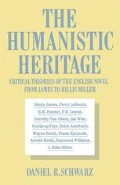Abstract
Although not only Edmund Wilson and The Partisan Review but even such formalists as Kenneth Burke and Dorothy Van Ghent approached the novel with a leftist political bias and included an ideological component in their critical perspective, Marxist criticism has not had a profound effect on traditional novel criticism in England and America. In this chapter I shall discuss two quite different figures: Arnold Kettle and Raymond Williams. For both, literature is related to the society that produced it. The two most significant Marxist critics of the English novel, they show both the expected focus on evaluating the degree to which a work mirrors a particular concept of reality. But they are also interested in the infinite variety and creativity of the artist. While the main focus of Marxist criticism is on art as representation of the socio-economic forces and the effects of those forces on human life, that is by no means the exclusive concern of Kettle or even Williams. Kettle’s non-theoretical and less ideological Marxism is roughly similar to that of Wilson and The Partisan Review circle, whereas Williams represents a more ideological and theoretical strain Marxism that owes much to European Marxists such as Adorno, Althusser, Goldmann, and Gramsci.
Access this chapter
Tax calculation will be finalised at checkout
Purchases are for personal use only
Preview
Unable to display preview. Download preview PDF.
NOTES
Peter Demetz, Marx, Engels, and The Poets (University of Chicago Press, 1967), trans. Jeffrey L. Sammons, rev. edn pp. 142–3.
Lucien Goldmann, The Hidden God; quoted in Andrew Milner, John Milton and the English Revolution (New York: Barnes & Noble, 1981) P. 3.
Raymond Williams, Marxism and Literature (Oxford University Press, 1977), p. 75.
J. Hillis Miller, Fiction and Repetition (Harvard University Press; Cambridge University Press, 1982); see Chapter One.
Through section III, page numbers in parentheses refer to Arnold Kettle, An Introduction to the English Novel, 2 vols (New York: Harper, 1960) orig. edn 1951.
Jonathan Culler, The Pursuit of Signs: Semiotics, Literature, Deconstruction (Ithaca, New York: Cornell University Press, 1981) p. 172.
Christopher Hill, Puritanism and Revolution (New York: Schocken Books, 1964) first edn 1958, pp. 367–94.
In section IV, page numbers in parentheses refer to Raymond Williams, The English Novel From Dickens to Lawrence (New York: Oxford University Press, 1970).
Terry Eagleton, Criticism and Ideology (London: New Left Books, 1976) p. 34.
Lionel Trilling, ‘Manners, Morals and the Novel’, The Liberal Imagination (Viking: New York, 1951) p. 206.
Author information
Authors and Affiliations
Copyright information
© 1986 Daniel R. Schwarz
About this chapter
Cite this chapter
Schwarz, D.R. (1986). Marxist Criticism of the English Novel: Arnold Kettle’s An Introduction to the English Novel and Raymond Williams’s The English Novel from Dickens to Lawrence . In: The Humanistic Heritage. Palgrave Macmillan, London. https://doi.org/10.1007/978-1-349-10885-5_10
Download citation
DOI: https://doi.org/10.1007/978-1-349-10885-5_10
Publisher Name: Palgrave Macmillan, London
Print ISBN: 978-0-333-49309-0
Online ISBN: 978-1-349-10885-5
eBook Packages: Palgrave Literature & Performing Arts CollectionLiterature, Cultural and Media Studies (R0)

